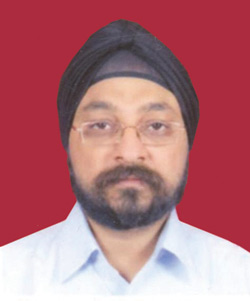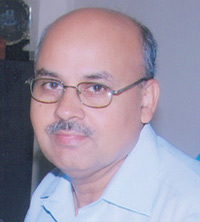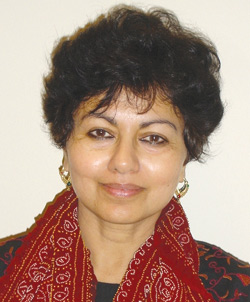 Rohit Pande
Rohit Pande
CEO, classteacher learning systems
Please highlight the aims and objectives of Classteacher solutions.
Technology is shaping the world and the relationships between humans as machines replicate ceratain aspects leaving the mind free to creatively engage in higher pursuits. In education, technology shapes not just the curriculum but also the way it is transacted. It allows for a transparent knowledge transfer across time and distance and also empowers unique peer learning models. Large scale reforms in the education sector ( both in public and private space ) shall be accelarated through the use of technology. Classteacher aims to use technology as enabler to bring out wide ranging enhancements in the educational delivery process for K-12. We have worked with and shall continue to work with the educational community to realize a powerful 21st century learning paradigm.
To what extent has digital technology and interactive learning techniques revolutionised education in the school level? How far has your company been successful in this direction? Can you provide us with some illustrations regarding your company’s achievement in this field?
Classteacher has over a decade of innovation in educational technology. We have served about a million students in over 500 schools. Classteacher has pioneered models for Interactive Whiteboards in classrooms, personalized assessments and web based learning support systems. The company believes that the impact of technology in education has only seen the “tip of the iceberg” and a lot more needs to be achieved by engaging the entire school community. One of classteacher’s key offering is arguably the largest digital curriculum resource with more than 50,000 visual interactive lessons.
Please elaborate on the innovative key patent pending technologies you have developed for classroom teaching-learning process in schools?
We have developed intellectual property in the following domains : classroom teaching across Science, Social Science, Maths and languages, web based learning and collaboration tools, personalization of learning delivery. Our understanding is borne out of our experience of multiple implementation cycles and we lay a lot of emphasis on teacher professional development. Our products are an open Lab where we listen to the needs to learner and eduactors to build powerful tools of learning.
Can you elaborate on the Skill Assessment Programme developed by Classteacher Solutions for the students? Is there any such programme for the teachers as well? Additionally, is there a need to develop the faculties of critical thinking in both the students and the teaching community?
The skill program is for students from grades 3-12 and tests skills which are related to the curriculum but beyond rote memorization. We have another assessment program for teachers which measures the effectiveness of our teacher trainign programs. We shall be launching India’s first and only web based teacher trainign program in 2010.
Can you ensure the reliability and accuracy of the skill assessment tests conducted by your company?
We are continuously measuring our assessment resources and assessment algorithms to improve the reliability and accuracy of measurement. Since our tests are taken by hundreds of thousands of children, our analytical engine churns a massive amount of data to create benchmarked performance reports.
Can you also throw some light on how some of your innovative tools and learning methodologies be employed in higher education sector?
A lot more needs to be done in the higher education sector to improve the quality of delivery and to increase the reach of delivery while maintaining richness. We have tools for Digital Classrooms, assessments, online delivery systems and language learning available for higher education.










 Jasvinder singh
Jasvinder singh Dr. S S Jena
Dr. S S Jena Prof. Latha Pillai
Prof. Latha Pillai Prof. Asha Kanwar
Prof. Asha Kanwar








